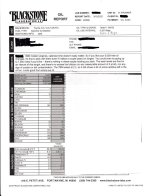Quoting Indiana Jones: "It's not the years, honey. It's the mileage."
I hope to help infrequent/short trip vehicle owners users to save some money.
I've attached a Blackstone analysis of a 2 year/5000 mile oil change.
Oil type: Normal Mobil 1 5W-30 with the recommended dosage of Liqui-Moly Mo-SO additive to minimize wear from weekly cold starts, (I live in central New England). Note: I have not noticed any increase of mileage with this additive, however the wear metals detected may have been decreased.
The OEM cellulose filter was changed at 3217 miles since oil change. Easy for 4th gen V6 4runner! If synthetic media, that might not be required.
Blackstone comments refer to my 20 miles weekly trip to buy groceries and rare recreational trips concerns.
I'm not promoting Mobil 1...I.m sure any top tier synthetic oil would do.
I hope to help infrequent/short trip vehicle owners users to save some money.
I've attached a Blackstone analysis of a 2 year/5000 mile oil change.
Oil type: Normal Mobil 1 5W-30 with the recommended dosage of Liqui-Moly Mo-SO additive to minimize wear from weekly cold starts, (I live in central New England). Note: I have not noticed any increase of mileage with this additive, however the wear metals detected may have been decreased.
The OEM cellulose filter was changed at 3217 miles since oil change. Easy for 4th gen V6 4runner! If synthetic media, that might not be required.
Blackstone comments refer to my 20 miles weekly trip to buy groceries and rare recreational trips concerns.
I'm not promoting Mobil 1...I.m sure any top tier synthetic oil would do.

